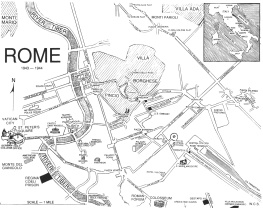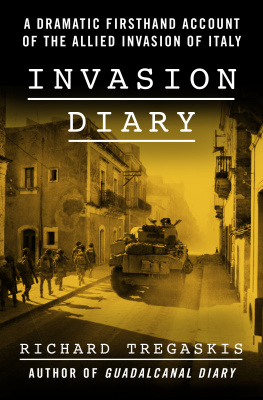William Simpson - A Vatican Lifeline 44: Allied Fugitives aided by the Italian Resistance foil the Gestapo in Nazi-occupied Rome
Here you can read online William Simpson - A Vatican Lifeline 44: Allied Fugitives aided by the Italian Resistance foil the Gestapo in Nazi-occupied Rome full text of the book (entire story) in english for free. Download pdf and epub, get meaning, cover and reviews about this ebook. year: 1995, publisher: Pen & Sword Books, genre: Non-fiction. Description of the work, (preface) as well as reviews are available. Best literature library LitArk.com created for fans of good reading and offers a wide selection of genres:
Romance novel
Science fiction
Adventure
Detective
Science
History
Home and family
Prose
Art
Politics
Computer
Non-fiction
Religion
Business
Children
Humor
Choose a favorite category and find really read worthwhile books. Enjoy immersion in the world of imagination, feel the emotions of the characters or learn something new for yourself, make an fascinating discovery.
- Book:A Vatican Lifeline 44: Allied Fugitives aided by the Italian Resistance foil the Gestapo in Nazi-occupied Rome
- Author:
- Publisher:Pen & Sword Books
- Genre:
- Year:1995
- Rating:4 / 5
- Favourites:Add to favourites
- Your mark:
A Vatican Lifeline 44: Allied Fugitives aided by the Italian Resistance foil the Gestapo in Nazi-occupied Rome: summary, description and annotation
We offer to read an annotation, description, summary or preface (depends on what the author of the book "A Vatican Lifeline 44: Allied Fugitives aided by the Italian Resistance foil the Gestapo in Nazi-occupied Rome" wrote himself). If you haven't found the necessary information about the book — write in the comments, we will try to find it.
It is a widely held belief that the Italians in the Second World War failed to win much in the way of martial glory. But the scoffers tend to overlook the fact that most Italians had little or no feeling of animosity toward the Alliesand to wage war against an enemy with whom you have no quarrel is a contradiction in terms.
This contradiction is vividly portrayed in William Simpsons dramatic account of his time in Rome after the downfall of Mussolini and Italys withdrawal from the war in September 1943, when thousands of Allied prisoners of war, let loose in surrendered Italy, fell prey to occupying Nazi forces. Simpson, an escaped POW, managed, after some hair-raising adventures, to find his way to Rome and soon discovered how widespread was the support of the Italians for the Allies, and how deep-seated their hatred of the Nazis. His adventures during the months before the Allies finally liberated Rome, helping to house and feed hundreds of Allied prisoners on the run, make for compulsive readingand leave no doubt about the extraordinary bravery of the many Italians who came to their aid. But the real hero of this dramatic story is Monsignor OFlaherty, who, with remarkable sangfroid, used the somewhat precarious neutrality of the Vatican, where he was employed, to help Simpson and his fellow fugitives.
William Simpson: author's other books
Who wrote A Vatican Lifeline 44: Allied Fugitives aided by the Italian Resistance foil the Gestapo in Nazi-occupied Rome? Find out the surname, the name of the author of the book and a list of all author's works by series.













